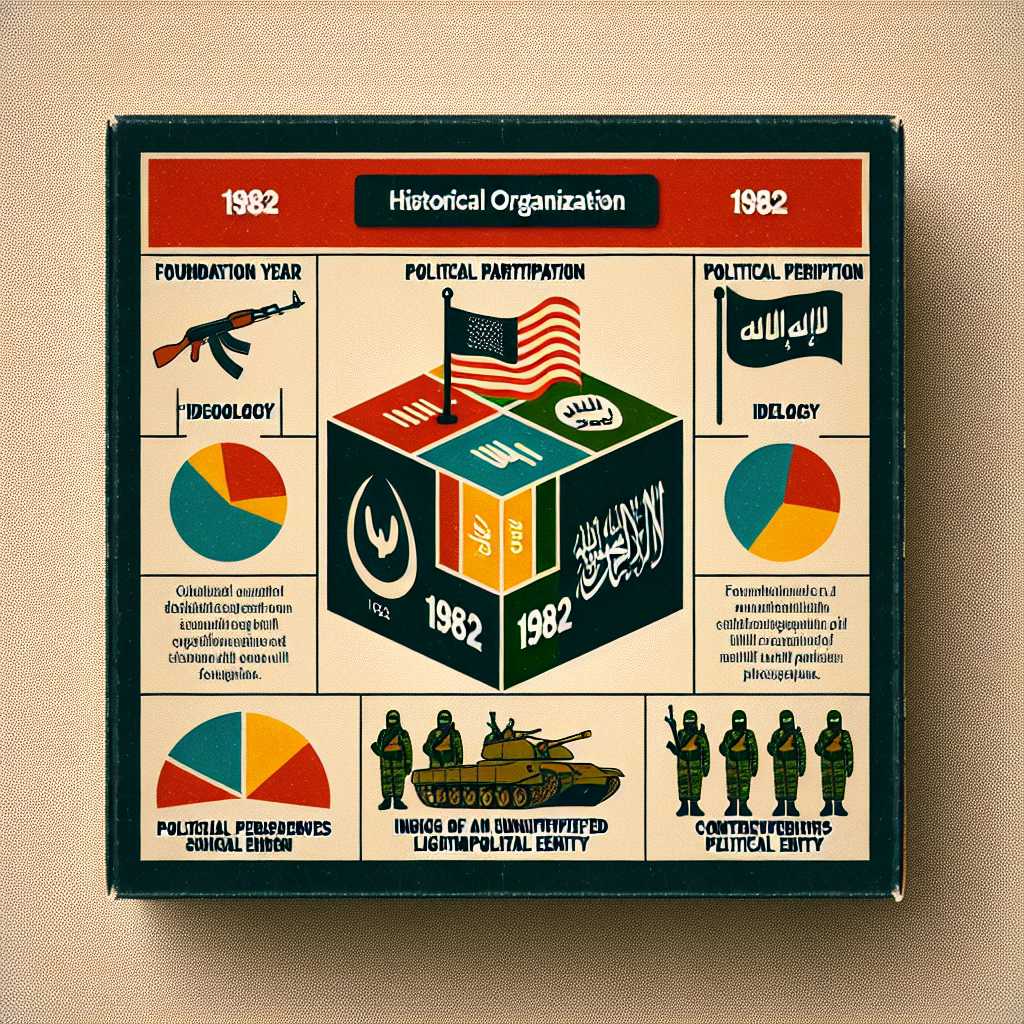The Overview and Evolution of Hezbollah
Hezbollah, literally “Party of God” in Arabic, is a socio-political and militant organization based in Lebanon with a complex history that began in the early 1980s. Founded by Shia clerics, the group has grown from a small militia to a major political and military force, not only within Lebanon but across the Middle East. It is simultaneously a player in Lebanon’s domestic politics, acting as a major party within to the government, and a proxy in broader regional conflicts implicating Iran and other countries.
Hezbollah’s beginnings can be traced to Lebanese civil strife and Israel’s invasion of the country in 1982, which was oriented towards ousting the Palestine Liberation Organization (PLO). The convergence of various factors, including the presence of Shia communities who felt politically and economically marginalized, the active involvement of Iran’s Revolutionary Guard, and growing tensions with Israel following its occupation provided fertile ground for Hezbollah’s growth as an armed resistance movement.
Hezbollah’s Ideology and Objectives
The fundamental ideology of Hezbollah is centered around the Shia Islamic faith with strong political dimensions influenced by the Iranian Revolution of 1979. The organization has stated goals which include the establishment of an Islamic state in Lebanon — although less emphasized in public discourse nowadays — the defense of Lebanese sovereignty against what it perceives as Israeli aggression, and support for Palestinian rights against Israel. Over time, despite maintaining an Islamist ideology, Hezbollah has pragmatically adjusted its position to accommodate multi-confessional Lebanese realities.
Hezbollah’s Military Wing and Activities
Hezbollah’s military capacity has been both at the core of its controversial status on the global stage and central to its narrative and legitimacy at home. In addition to multiple clashes with Israeli Defense Forces, culminating in the 2006 Lebanon War after Hezbollah kidnapped two Israeli soldiers, it has been involved in security operations inside Lebanon dealing with various threats, notably from extremist groups.
Political Involvement and Domestic Impact
Although seen by many as an exclusively militant organization, Hezbollah also has a substantial presence in Lebanese national politics. It operates social services and runs for elections, securing a significant bloc within the Lebanese parliament. Its political arm works within the framework of Lebanese democracy while its militant wing maintains significant power outside of it.
International Relations and Designations
Internationally, Hezbollah is widely designated as a terrorist organization by countries like the United States and Israel among others. These countries cite its militant activities, its arsenal of weapons not under state control, alleged involvement in international terrorist acts, and its strong ties with Iran as grounds for such designations. Conversely, it is viewed differently by nations such as Russia and China or regional allies including Iran and Syria; these states recognize Hezbollah as a legitimate resistance movement or include only its military wing in their terrorist listings.
Controversies and Conflicts Involving Hezbollah
Hezbollah has been involved in various conflicts outside Lebanon, particularly in Syria where it provided crucial support to Bashar al-Assad’s regime during the Syrian Civil War. Its role has contributed to its standing as an influential regional actor but also attracted criticism for supporting authoritarianism and contributing to regional instability.
Hezbollah’s Relationship with Non-State Actors
Moreover, Hezbollah maintains relations with other non-state actors across Middle East conflict zones. It has reportedly supplied militia groups aligned with its ideology with training, funding, or weaponry; all purportedly part of what some call an Iranian-aligned “axis of resistance” against Western influence and Israeli policies.
Notes
*Image description:*
A graphic highlighting key aspects of Hezbollah – on one side three bullet points outline ‘Foundation year: 1982’, ‘Ideology: Shia Islamism’, and ‘Political Participation: Significant presence’. To complement these points, imagery symbolically represents Lebanon’s national colors alongside depictions of military equipment to signify militaristic aspects of the organization. At the bottom right corner, there is a pie chart indicating controversial perceptions with one segment marked as ‘Terrorist Designations’ contrasting against another marked ‘Legitimate Political Entity’.

